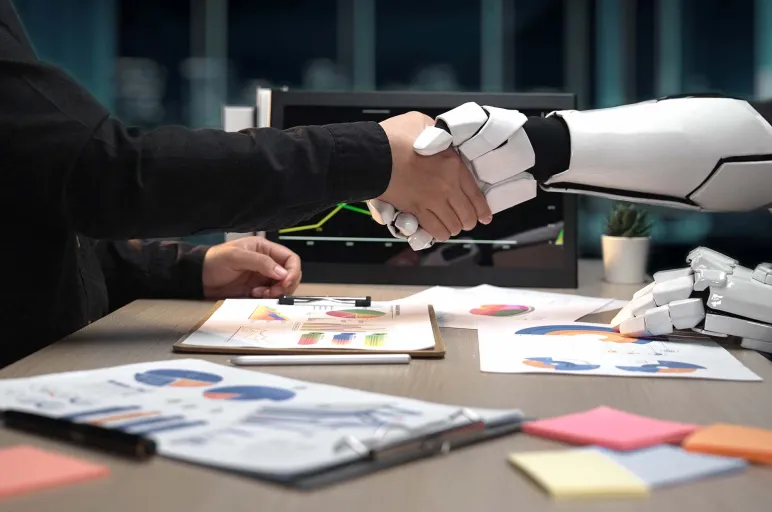
What Are Autonomous Negotiation Agents? (And How They Can Benefit Procurement)
June 18, 2025 | Technology read
Procurement teams spend a lot of time negotiating pricing and payment terms with vendors. Are all these negotiations worth the time and effort? What if many of these small, routine negotiations and deals could be automated?
Historically, these deals have slipped through the cracks. Procurement teams often do not have sufficient resources, or they don’t see enough ROI in chasing minor cost differences across fragmented purchases.
But now, these cracks are being filled by autonomous negotiation agents.

Tariffs Driving Up IT Spend? Here’s How AI-Powered Procurement Can Help
May 07, 2025 | Procurement Software read
Think about the last time your team wrestled with an unexpected surge in cloud costs or the renewal of a sprawling software license agreement. The complexity often lies not just in the technology, but in the procurement processes that govern its acquisition.
Are you truly seeing the full picture of your IT spend, or is it being obscured by fragmented purchasing, decentralized approvals and a lack of real-time data?
5 Ways AI Can Be Your Strategic Ally Against Tariff Turbulence
While trade policies turn on a dime, your supply chain shouldn’t suffer the fallout.
That’s why artificial intelligence can be your best defense against tariff volatility.
Forward-looking organizations are using AI to track exposure, adjust sourcing, and create contracts that can bend without breaking.
In this quick read, GEP’s Ryan Gianni outlines five practical ways to cut through the chaos — with AI at the center of it all.
What’s Inside:

How AI is Changing the Game in Procurement Orchestration
April 11, 2025 | Procurement Software read
Over 50% of organizations have automated their procurement processes, with approximately 35% now utilizing artificial intelligence (AI) in procurement, according to an article published on Spend Matters. This a notable increase from 29% in 2020. It shows that businesses are increasingly adopting AI-driven procurement solutions to enhance efficiency, compliance, and strategic decision-making.

How AI-Powered RFQs Can Streamline Sourcing
April 10, 2025 | Procurement Software read
If you’re a sourcing pro, you’ve probably had to deal with a Request for Quotation (RFQ) process when selecting a supplier. You define the specifications for what you’re looking for, identify potential suppliers, send out RFQ documents, evaluate the responses and then select the best offer based on cost, quality and other key metrics.
RFQs are a cornerstone of procurement, and they ensure that organizations secure the best suppliers at competitive prices. But doing them the old-fashioned way is often time-consuming, data-heavy and prone to inefficiencies.

4 Key Benefits of AI in Spend Management
April 10, 2025 | Technology read
As a procurement professional, your key responsibility is to track organizational spend and look out for savings opportunities. But tracking spend isn’t easy, as you go through hundreds of transactions in different categories with different vendors. How can you expedite this process, manage spend effectively and reduce manual errors?
Surely, there’s a better way for procurement teams to work—and AI is delivering it.

The AI Race Isn’t Just About Tech — It’s About Supply Chain Agility
April 09, 2025 | Supply Chain Strategy read
As a procurement professional, you may be looking to leverage the latest AI technology and tools to streamline source-to-pay (S2P) operations. In fact, you may already be exploring use cases of AI at different stages of the S2P cycle.
But the question is: Can you get an edge in a highly competitive market simply by leveraging AI? How will you sustain and scale technology deployment in the long run?

AI Contract Review Software: The Key to Faster, Smarter Procurement
April 02, 2025 | Procurement Software read
Contracts are the backbone of procurement, but traditional contract review processes are slow, error-prone and resource-intensive. AI contract review software is changing the game by automating contract analysis, identifying risks and ensuring compliance in a fraction of the time it takes to do it manually.

5 Ways AI is Revolutionizing Third-Party Risk Management
March 27, 2025 | Technology read
Artificial intelligence (AI) is no longer a luxury in third-party risk management (TPRM)—it's a necessity. With supply chains growing more complex and regulations tightening, businesses that fail to integrate AI risk falling behind. But how exactly is AI reshaping TPRM beyond the basics?
Forget simple automation. Today's AI-driven solutions don't just track risks, they predict and prevent them, and even optimize decision-making. From forecasting potential disruptions to enhancing cybersecurity, AI is transforming how organizations manage vendor relationships.
Pagination
- Page 1
- Next page



